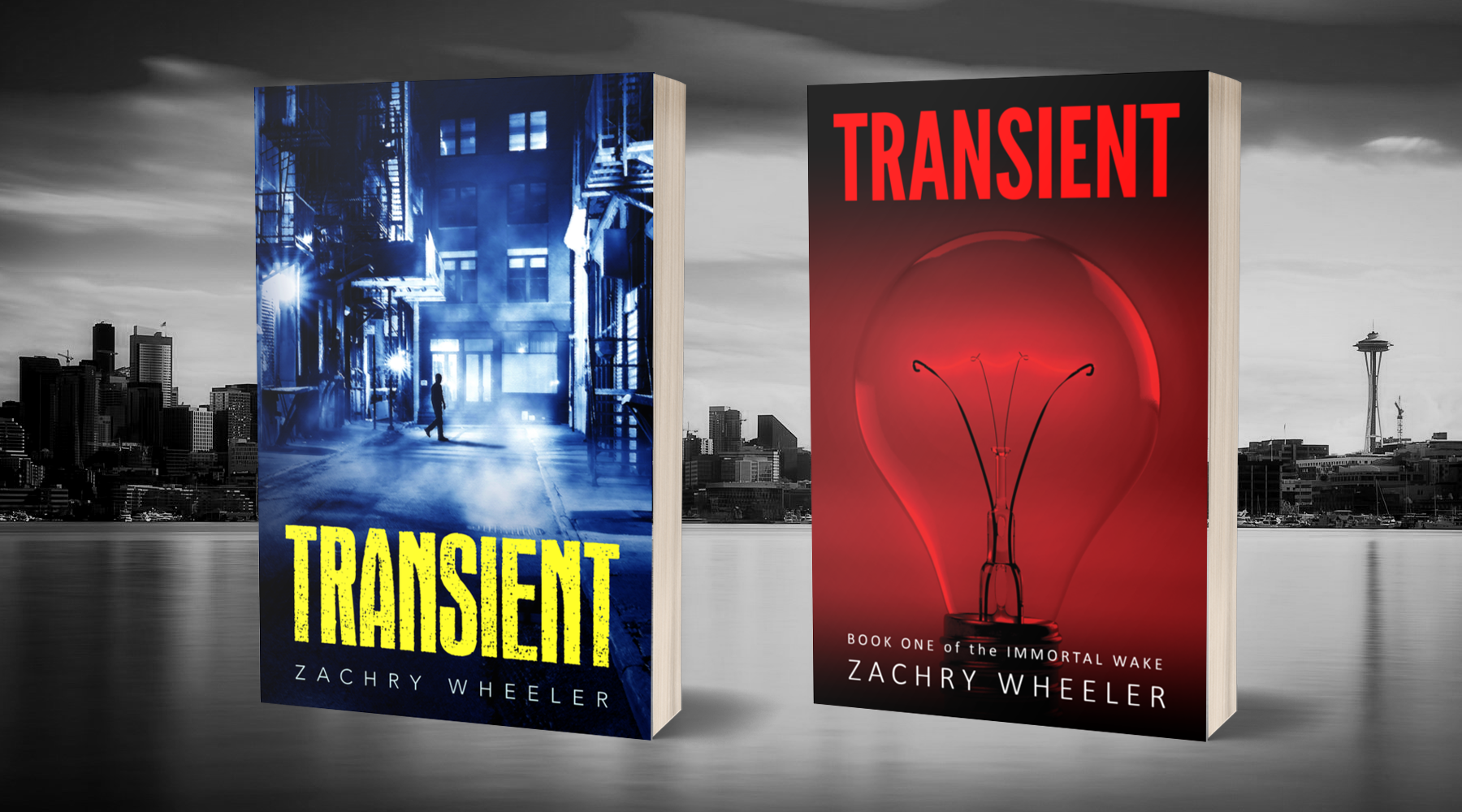You may have noticed that your Kindle copy of Transient now has an update available. This is a big one, so I encourage you to click that “Update” button. (Kill those notations! Kill them, I say! Muhahaha!) But before I get into the details, I should provide a little backstory.
Over the last several years, I have grown as a reader and a writer. My debut novel taught me a lot about authorship and publishing, but as with most beginnings, there were problems that I couldn’t see. It takes a long time to gain perspective on a project that you lived and breathed for years. Five books later (and with the series finally complete), I decided to revisit that first book with a fresh set of eyes.

I should clarify that I do not think Transient is a bad book. Far from it. I am very proud of the material and I stand behind the first edition. But after several years in the author trenches, I have learned a great deal about the nature of fluid writing. When I revisited the first edition, I realized that I had relied on some common newbie crutches. Namely, the book contained a lot of needless description. I read through the entire novel while mumbling things like “don’t need that word” and “could drop this sentence.”
Authors like flourish, but new authors love flourish.
When I reached the end, I thought that the story had read a bit clunky. Most readers won’t notice or care, but the ones that do tend to write reviews. Several years of feedback revealed an early flourish, a quirk that I corrected over the next several books. But even so, it bothered me that Transient suffered by comparison, especially within its own series.
And so, I decided to give the book a fresh polish. I took a deep breath, cracked my knuckles, and got to work. Several weeks later, I had trimmed 3,000 words from the manuscript. That’s an entire chapter’s worth of material. Poof! Gone. And much to my delight, the book read so much better. No more speed bumps, no more garnish, just a smooth ride from start to finish. As a cherry on top, I clipped some of the cumbersome Russian slang and dropped a language reference into the front matter.
BAM! Better book … which springboards into an even better book.
Conventional wisdom in the writing community states that you should only revisit published material to fix minor errors. A common refrain is “That was the best you could do at the time. Leave it alone and concentrate on the next book.” I have now come to the conclusion that this advice is total rubbish (and justifies laziness). You should absolutely revisit old material because it’s part of the total package. A quality backlog is a huge part of an author’s success. If a reader starts with the worst book and decides to forgo the rest, then the fault lies with the author. Or even worse, what if they start with the best book and wind up resentful? Eek.
Ask yourself, how many successful authors have a backlog of garbage?
As a specific example (for those who have read the Immortal Wake series), consider Agent Korovin, one of the main characters in Thursday Midnight. He was introduced at the end of Transient and I had little insight into his backstory. All I needed was a government goon for Jonas to interact with. But after fleshing out his character in the second book, I developed a keen understanding of his motivations. So when it came time to polish that last chapter of Transient, I knew exactly what he would and wouldn’t say. I ended up tweaking some of his manners and dialogue to better reflect his now-established persona.
Transient was a stand-alone book that blossomed into a series. And now that the series is complete, all three books need to work as a cohesive narrative. I know that seems like an obvious thing to say, but it’s a lot harder than you think. Creating a compelling series is an exercise in masochism. Constructing one from a stand-alone is the writing equivalent of smashing yourself in the head with a brick. In the end, I learned so much more about my protagonist. And when it came time to revise the first book, I could assert with clarity that “Jonas would never do/say that.”
Writing is fluid and nothing is set in stone. As an independent author, I have control over the words I publish. And if changing those words will improve the reading experience, then I have an obligation to do so.


